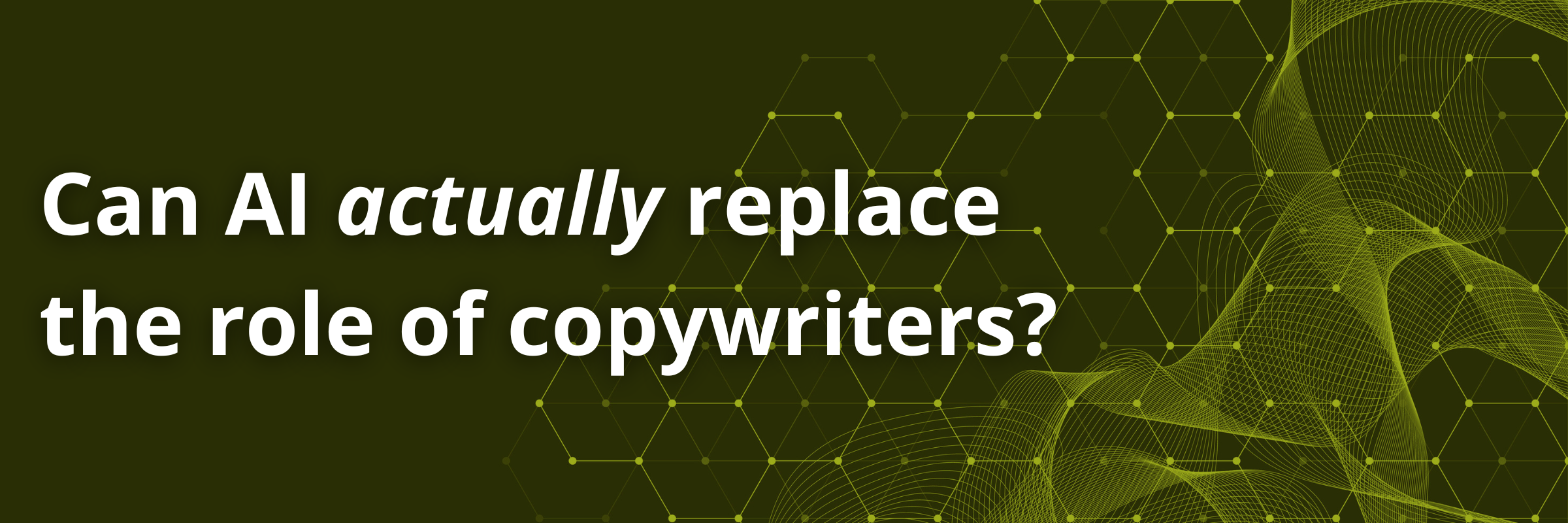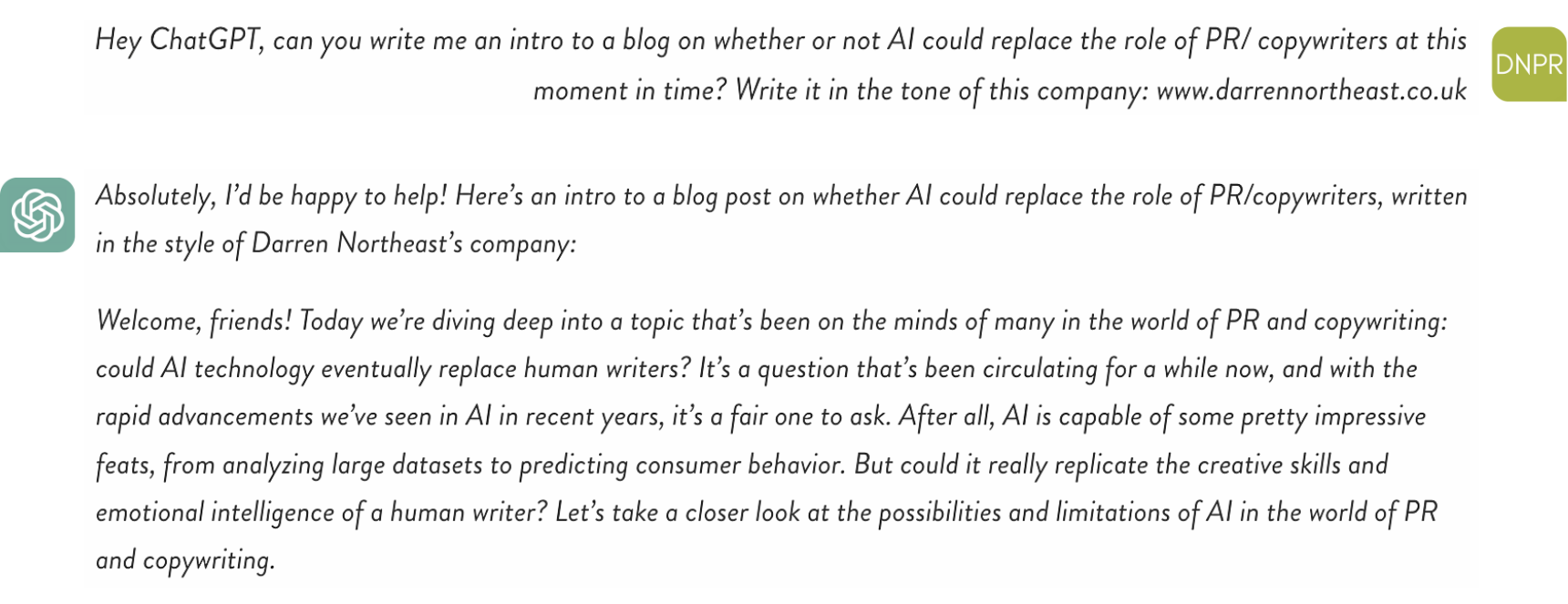

With AI being depicted in almost every film/ tv show these days, and real-world tech development advancing so much as of late too, the topic of AI replacing certain jobs is one that has been circulating in a lot of industries, with many people wondering just how much AI can do.
But how realistic is this “takeover”? It’s pretty easy to say that one day AI will be doing most of our jobs for us, but when you look into it, you’ll find that it won’t be that easy.
So, what’s wrong with ChatGPT’s intro?
At first glance, this intro seems incredibly impressive, especially when it materialised in a matter of seconds, but when you read it through, it quickly becomes apparent that it wasn’t written by an experienced copywriter.
Despite linking our website, where there are plenty of examples of our tone of voice it could draw from, ChatGPT still missed the mark and couldn’t quite match how we write. And, upon asking some of our colleagues their thoughts, each immediately noted that the tone was not our typical style and felt like it was written by a computer, saying something felt ‘off’ that they couldn’t put their finger on.
From our experience, this intro reads at a lesser level than undergraduate students’ work we’ve seen before, and considering these AIs have the entirety of the internet at their figurative fingertips, it’s quite thought-provoking.
The missing link
Whilst these AI softwares can do a great job of emulating the human tone, there is one major thing that they lack – the human experience. AI may be able to search the entire internet in seconds and create something from what it finds, but it can’t emulate the experiences people go through on a day-to-day basis – at least not yet…
Each day, we as individuals go through a plethora of different conversations, decisions, and experiences that all, no matter how significant, affect the way we perceive the world. This unique viewpoint then shapes how we communicate and present ourselves to those around us, something AI struggles to do undetected.
By drawing information from the entirety of the internet, AI learns tone from each of these sources, and when they all come from unique viewpoints, it can often make the copy feel disjointed.
Something else to consider is the role copy plays in search engine optimisation (SEO) and its algorithms. To weed out potential spam sites, illiterate sources and fake news, search engines are often optimised to encourage ‘human writing’, ranking sites with more of a personal tone higher in search lists, as they are much more likely to be useful for the end user.
Replacement or a tool?
Simply put, AI, at least in its current state, cannot replace copywriting. And, by the time you’ve rerun it enough times to get the tone just right, you could’ve written it yourself to a better standard.
However, that doesn’t mean it can’t be a useful tool. From getting it to do your research, to generating content ideas when you’re hitting a wall, or even helping you to act out various scenarios, AI like ChatGPT can inspire you to write something new – as if it was a colleague offering a different perspective.
The perks of using it for lesser tasks, like research, mean the legwork is already done for you, and you can come to your own conclusions from the data provided. Not only does this help keep the authenticity of your copy, but it can help you avoid any other risks, such as plagiarism.
Of course when you need dummy text or quick content here and there, by all means, use an AI to help you, just be wary of all mentioned above.








 News & Insights
News & Insights  19.04.2024
19.04.2024